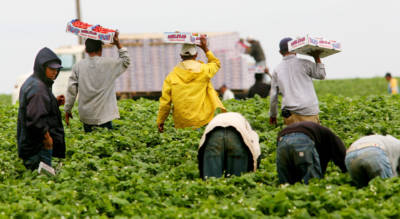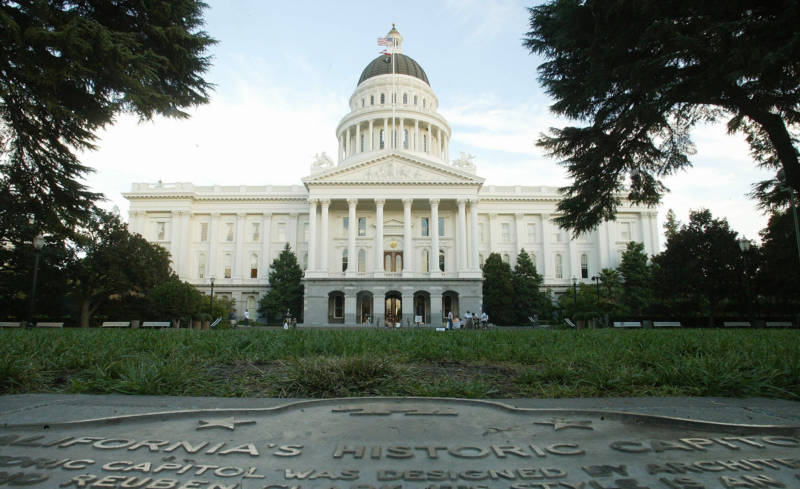The Legislature has been meeting throughout the month of August taking final votes on hundreds of bills. Gov. Jerry Brown now has a month to review and act on them. Below we highlight some of the major legislation lawmakers took up in their final weeks of session.
- Asset Forfeiture:
Lawmakers sent the governor a bill seeking to limit seizures of property or money by police in situations where a person is never convicted of a crime. Known as asset forfeiture, the practice allows law enforcement officials to seize someone’s property if they suspect it is tied to criminal activity. Asset forfeiture originally became popular among law enforcement agencies as a way to go after large drug dealers, but critics say it’s become a way for police and prosecutors to pad their budgets with the money of innocent, often marginalized people. SB 443 by state Sen. Holly Mitchell, D-Los Angeles, was two years in the making. Last year, prosecutors successfully lobbied to kill the bill in the Assembly. But this year, law enforcement groups agreed to a series of amendments, and the bill passed with bipartisan support in both houses. If signed by Brown, the legislation would require a conviction before the permanent seizure of cash or property worth less than $40,000. - Retirement Savings Accounts:
There are an estimated 7 million California workers who aren’t offered any sort of retirement account by their jobs -- and state Senate President Pro Tem Kevin de León has been working for years to change that. If Brown signs SB 1234, those private sector workers will soon see a small portion of their earnings automatically directed into a retirement savings account that would be managed by a state board. They could opt out -- but supporters believe most would not, and that the measure would be a big step toward offering millions of Californians, often people working in lower-wage or hourly jobs, more retirement security. The federal government recently approved the creation of these types of state programs, and if California’s legislation is enacted, de León expects the program to be up and running within a year. - CPUC Reform:

A law enforcement official runs toward a massive fire in a residential neighborhood Sept. 9, 2010, in San Bruno, California. (Justin Sullivan/Getty Images) The California Public Utilities Commission has been in the news a lot since a PG&E gas pipeline exploded in San Bruno six years ago, killing eight people. Investigations into that tragedy and other flaps involving utilities since then have raised questions about the agency and led to charges that its members are too cozy with the private businesses they are tasked with overseeing.
Lawmakers in Sacramento for years have been trying to get at some of the accountability issues raised during those investigations -- including making sure utility officials don’t have inappropriate private conversations with CPUC commissioners and staff before key votes, and more broadly ensuring CPUC officials are following ethics rules. Last fall, Gov. Brown vetoed a package of bills aimed at reforming the troubled agency -- but he promised to work with the Legislature in 2016 to reach a compromise.
After months of negotiations, Brown and Democratic lawmakers in June announced an agreement.
SB 215 by state Sen. Mark Leno, D-San Francisco, would set stricter rules and disclosure requirements around lobbying CPUC commissioners and expand the circumstances under which they would be required to recuse themselves from a vote because of a conflict of interest.
SB 512 by Sen. Jerry Hill, D-San Mateo, would require the CPUC to reach out to all potentially affected parties, not just utilities, before a vote, would require annual reviews of the commission’s executive director and would make some changes to the agency’s governance structure. The governor has promised to sign both bills.
A third CPUC reform bill failed to win passage. AB 2903, by Assemblyman Mike Gatto, D-Los Angeles, would have created two new CPUC positions to oversee ethics and safety issues while also moving transportation oversight from the agency to Caltrans. It was a bitter defeat for Gatto, who is termed out of the Assembly.
- Rape and Sexual Assault: The Legislature acted on several bills this year stemming from the case of former Stanford student Brock Turner, who was sentenced to just six months in jail despite being convicted on three counts of felony sexual assault. His victim was unconscious at the time of the January 2015 assault. Two rape charges against Turner were dropped. He is scheduled to be released from Santa Clara County’s jail on Friday after serving three months of his sentence.

Stanford student Paul Harrison carries a sign in a show of solidarity for the victim in the Brock Turner case during graduation ceremonies at Stanford University on June 12, 2016. (Gabrielle Lurie/AFP-Getty Images) AB 701 by Assemblywomen Cristina Garcia, D-Bell Gardens, and Susan Talamantes Eggman, D-Stockton, would expand California’s definition of rape to include all forms of nonconsensual sexual assault. The current law limits rape to nonconsensual intercourse.
AB 2888 by Assemblymen Evan Low, D-Silicon Valley, Bill Dodd, D-Napa, and Sen. Jerry Hill, D-San Mateo, would prohibit judges from granting probation in sexual assault cases where the victim was unconscious or intoxicated.
Another measure, SB 813 by Sen. Connie Leyva, D-Chino, was taken up before Turner’s sentencing. It would eliminate the statute of limitations for several sex offenses, including rape and continuous sexual abuse of a child.
All of those bills are headed to the governor.
- Human Trafficking: The Legislature took up several bills aimed at curbing human trafficking and treating those who are trafficked as victims rather than criminals. One of the more hotly debated measures was SB 1322 from Sen. Holly Mitchell, D-Los Angeles. It would prevent children under 18 from being charged with prostitution. Supporters said it would allow children to get the services they need without being classified as criminals. But opponents argued arresting kids is the only reliable way to get them away from their traffickers. AB 1761 from Assemblywoman Shirley Weber, D-San Diego, would allow human trafficking victims to present an affirmative defense in court, meaning they agree they committed a crime, but can argue their circumstances justified their actions. Weber says victims are often forced to commit crimes under threat from their traffickers. AB 1762 by Assemblywoman Nora Campos, D-San Jose, would allow human trafficking victims convicted of nonviolent crimes to request their convictions be vacated. All three measures are headed to the governor.
- Labor: California lawmakers took up several bills this year aimed at eliminating income disparities in the state. Among the more controversial was AB 1066 by Assemblywoman Lorena Gonzalez, D-San Diego. It would allow farmworkers to be paid overtime after they work eight hours a day or 40 hours a week. Right now they must work 10 hours a day or 60 hours a week to get extra pay.

Farmworkers harvest strawberries in Carlsbad. (Sandy Huffaker/Getty Images) The measure failed to get enough votes to pass the Assembly in June. But Gonzalez used the gut-and-amend process to revive the bill. Though it faced tough opposition, the proposal passed the Assembly this week with 44 votes, three more than needed. Critics argue the bill will be a financial burden for farmers and cause them to cut hours for farm workers to avoid overtime costs. The measure now goes to the governor.
SB 654 would expand the state’s existing family leave job protections for anyone — man or woman — with a new child within a year of their birth, adoption or foster placement. It was a top priority of the Legislative Women’s Caucus. An earlier version of the bill was killed in the Assembly Labor Committee.
But legislative leaders revived it after a restraining order was issued against the committee's chair following domestic abuse allegations. Currently, California’s family leave laws apply only to businesses with 50 or more employers. SB 654 would include businesses with 20 or more employees within 75 miles of one another, meaning a business with multiple job sites would have to comply even if there are only a handful of workers at each location. The bill now goes to the governor.
- Climate: Ten years ago California took steps to limit its greenhouse gas emissions with the passage of AB 32. It required the state to reduce emissions to 1990 levels by 2020. Since then, Gov. Brown has made fighting climate change a hallmark of his administration. The issue is also a priority for leaders in both the Senate and Assembly.

San Antonio-based Valero Corp. is the nation's biggest refiner. The Benicia refinery is one of two the company operates in California. (Craig Miller/KQED) SB 32, by Sen. Fran Pavley, D-Agoura Hills, seeks to extend and expand AB 32. It would require emissions be reduced to 40 percent below 1990 levels by 2030.
Its companion measure, AB 197 from Assemblyman Eduardo Garcia, D-Coachella, attempts to help disadvantaged communities by directing the state Air Resources Board to collect and publicly release more data and create regulations that would reduce pollution at the biggest “stationary” and “mobile” polluters — i.e., industries and vehicles that could be harming those communities.
The bills do not address the future of the state’s cap-and-trade program, which sets statewide limits on greenhouse gas emissions and sets up a market where companies can buy and sell credits (a company that can easily reduce emissions can sell credits to those for which such a reduction would be difficult). The program has an uncertain future, in part because it is being fought by business groups in court.
Brown has said he will sign both bills.
